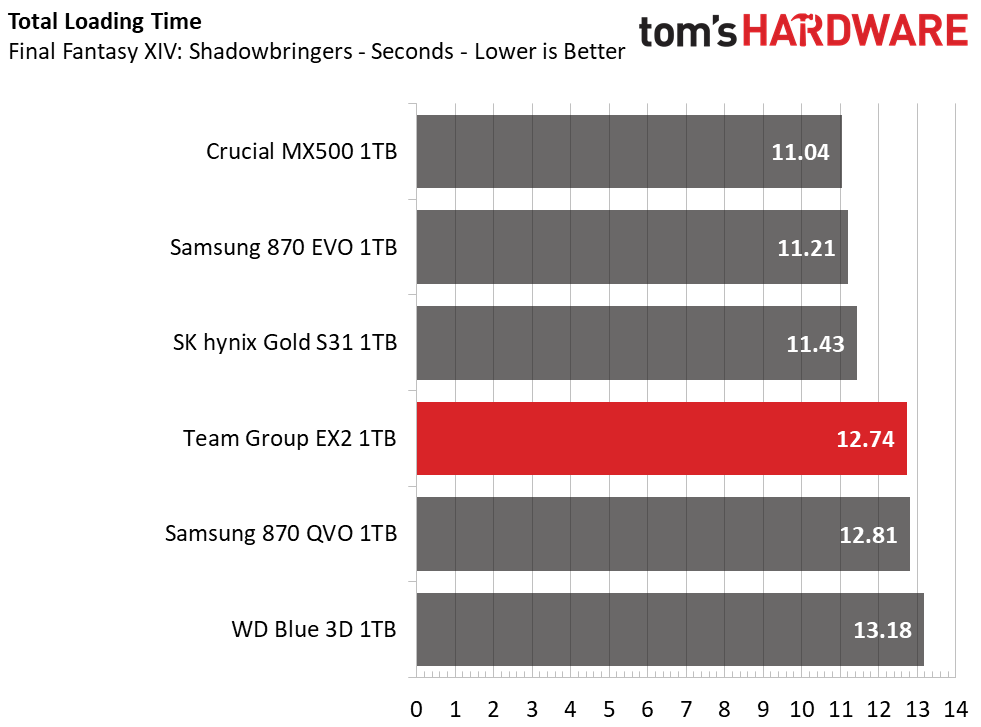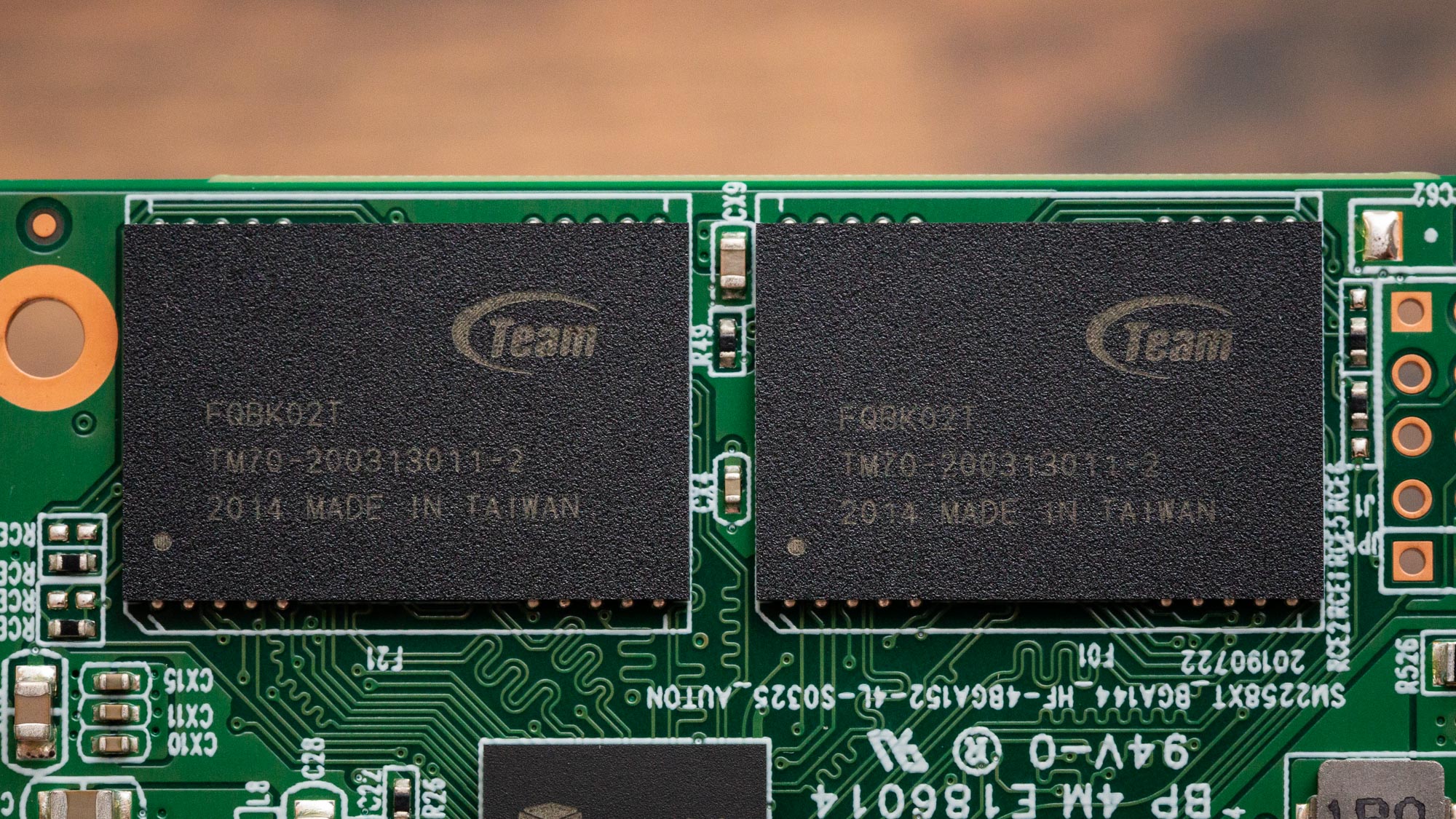Why you can trust Tom's Hardware
Comparison Products
To gauge its performance, we put the Team Group EX2 up against some of the Best SATA SSDs. We included Samsung’s 870 EVO and QVO as well as the Crucial MX500, WD Blue 3D, and SK hynix Gold S31.
Game Scene Loading - Final Fantasy XIV
Final Fantasy XIV Shadowbringers is a free real-world game benchmark that easily and accurately compares game load times without the inaccuracy of using a stopwatch.
In terms of game load performance, the Team Group EX2 delivers responsive load times that are comparable to that of the Samsung 870 EVO WD Blue 3D. The drive is just a second or two slower than the fastest SSDs in the bunch.
Transfer Rates – DiskBench
We use the DiskBench storage benchmarking tool to test file transfer performance with a custom dataset. We copy a 50GB dataset including 31,227 files of various types, like pictures, PDFs, and videos to a new folder and then follow-up with a reading test of a newly-written 6.5GB zip file.
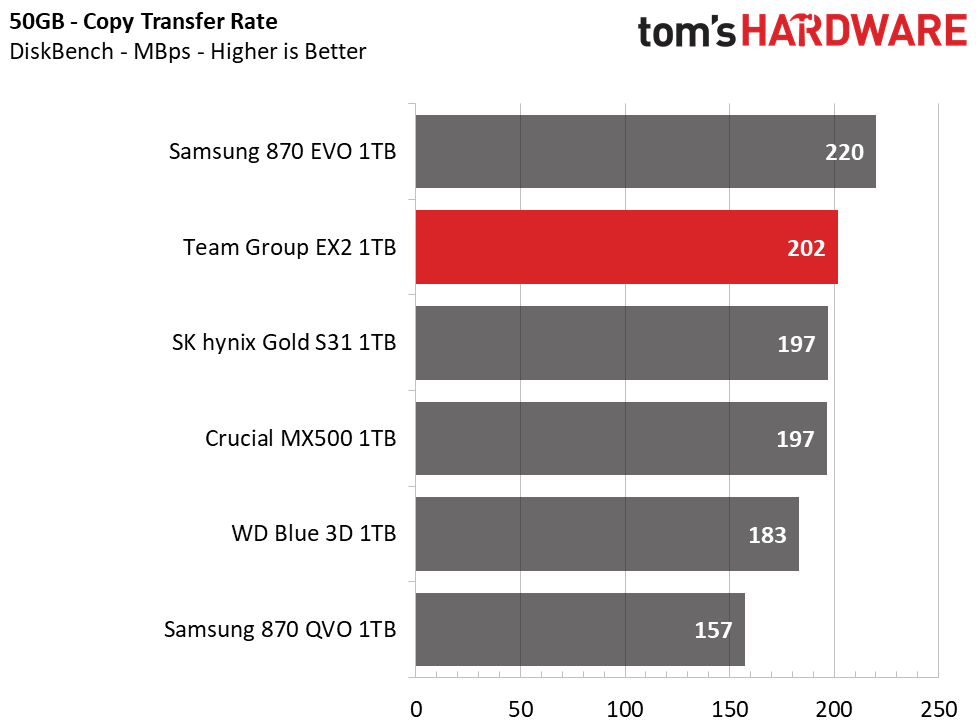
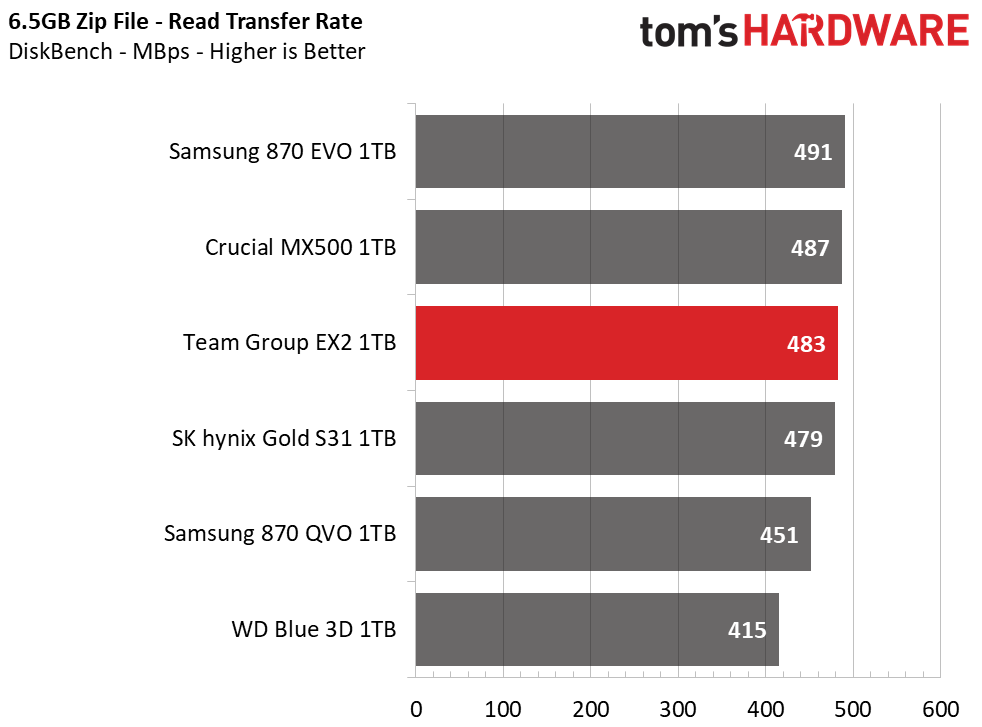
When copying moderately-sized file folders, the EX2 proves that it can deliver responsive results. The drive lands in second place, inching ahead of SK hynix’s Gold S31 and falling behind Samsung’s 870 EVO. The EX2 continued to deliver responsive performance, but fell to third place when reading back our large .zip file.
Trace Testing – PCMark 10 Storage Test
PCMark 10 is a trace-based benchmark that uses a wide-ranging set of real-world traces from popular applications and everyday tasks to measure the performance of storage devices.
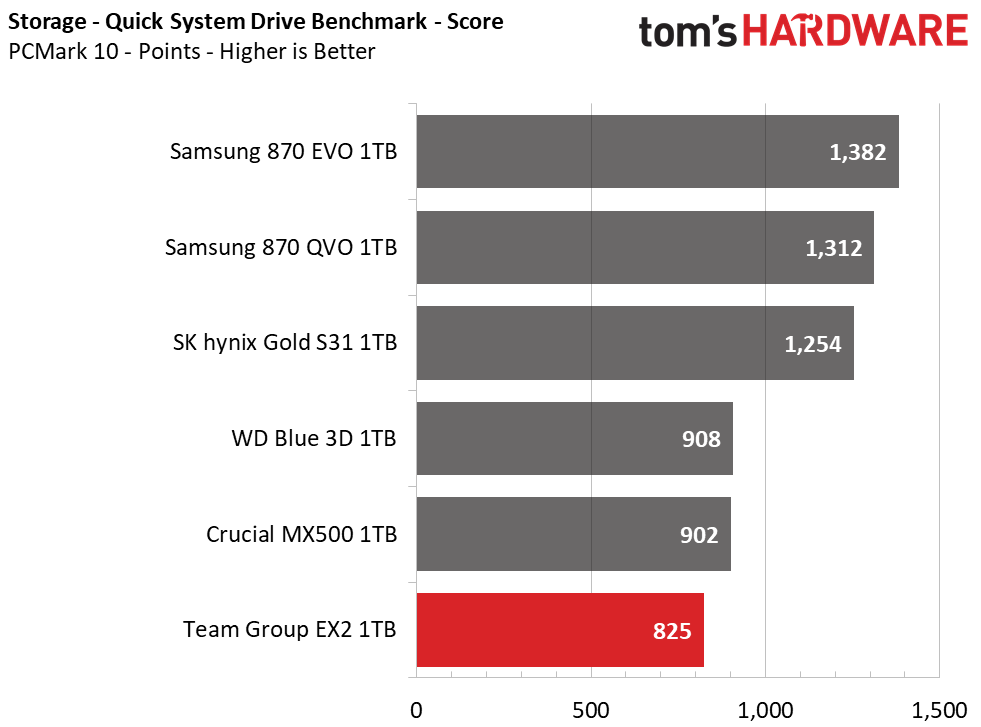
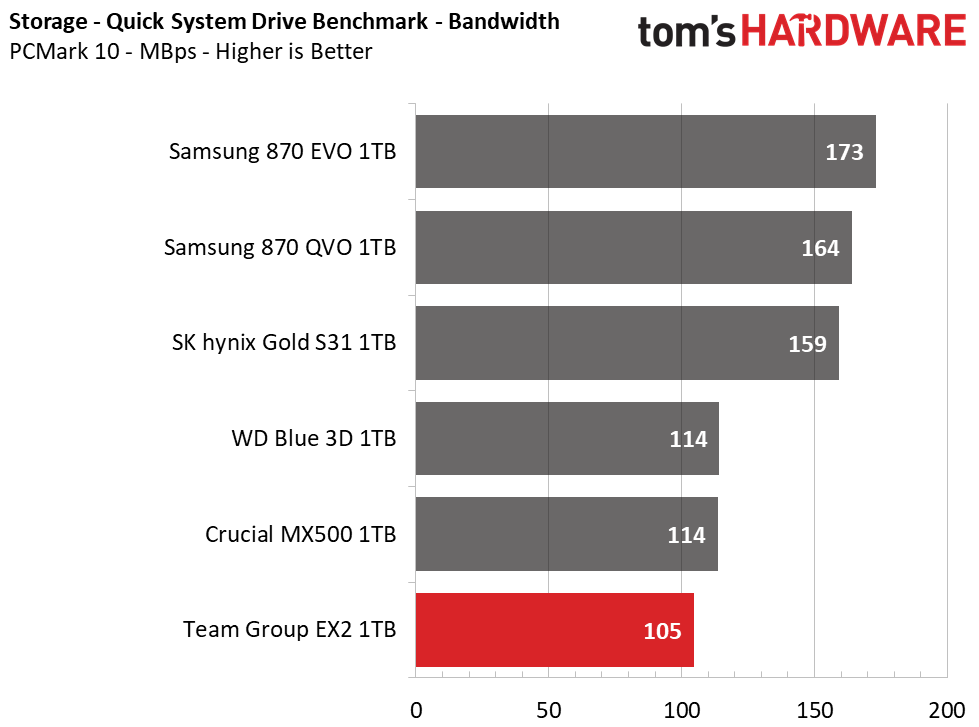
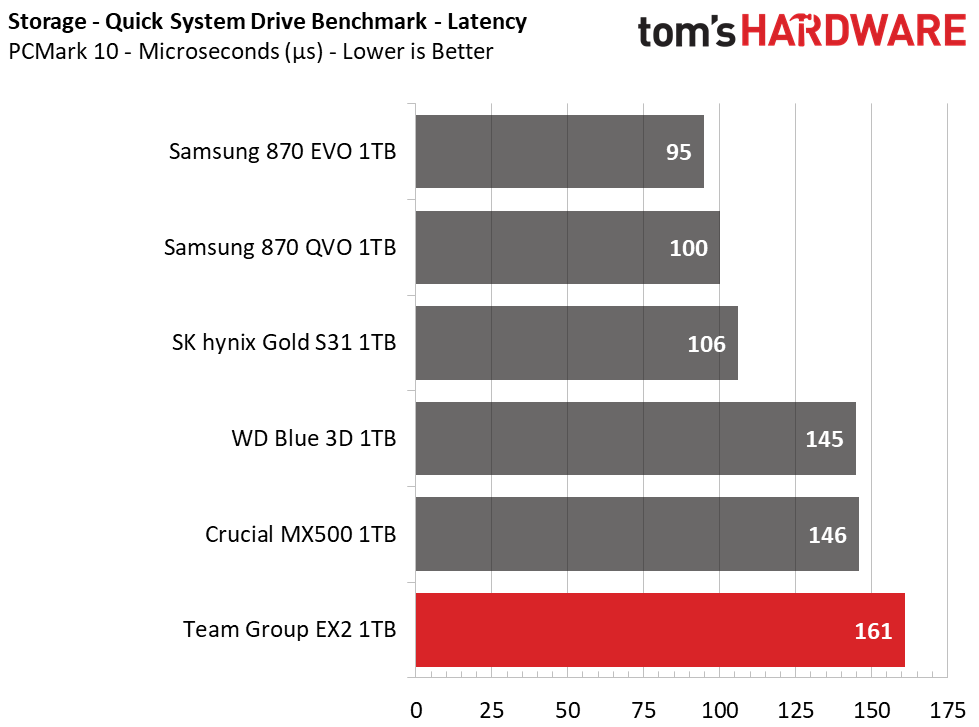
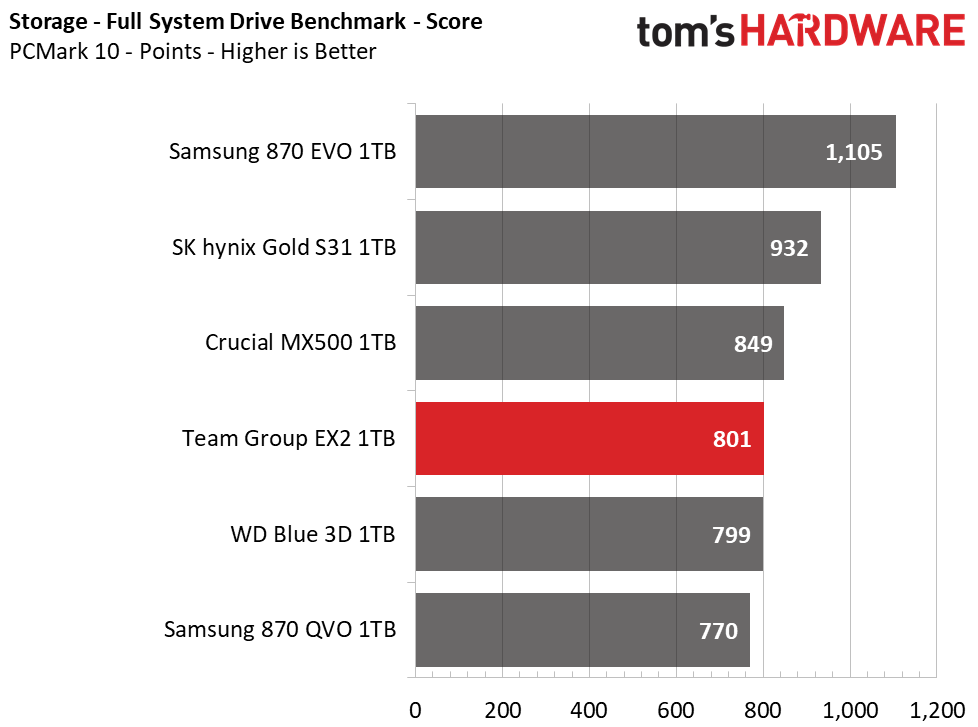
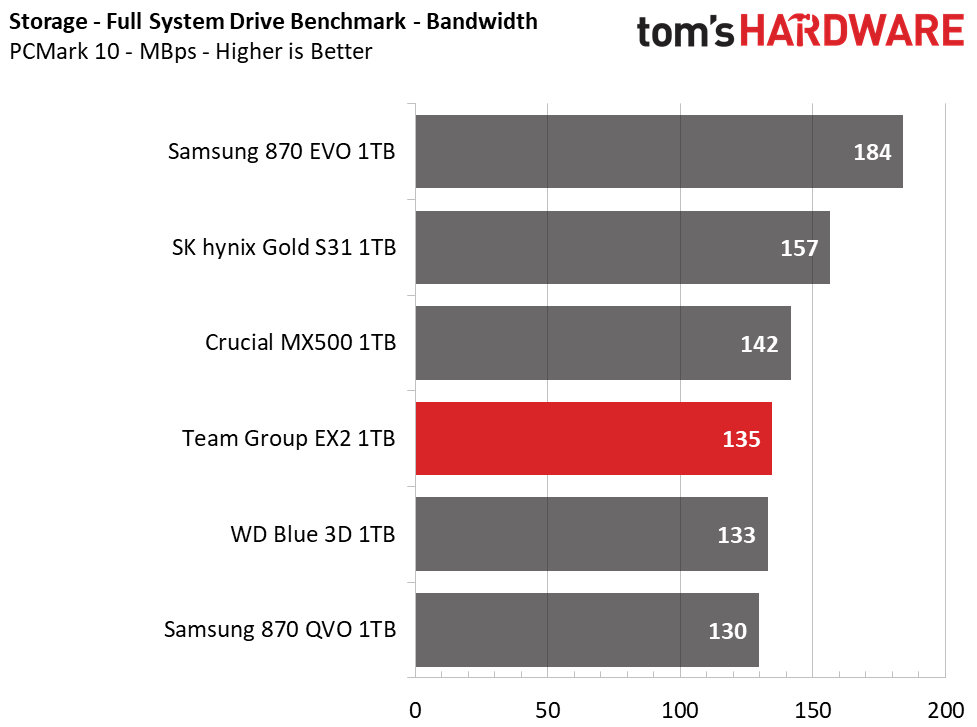
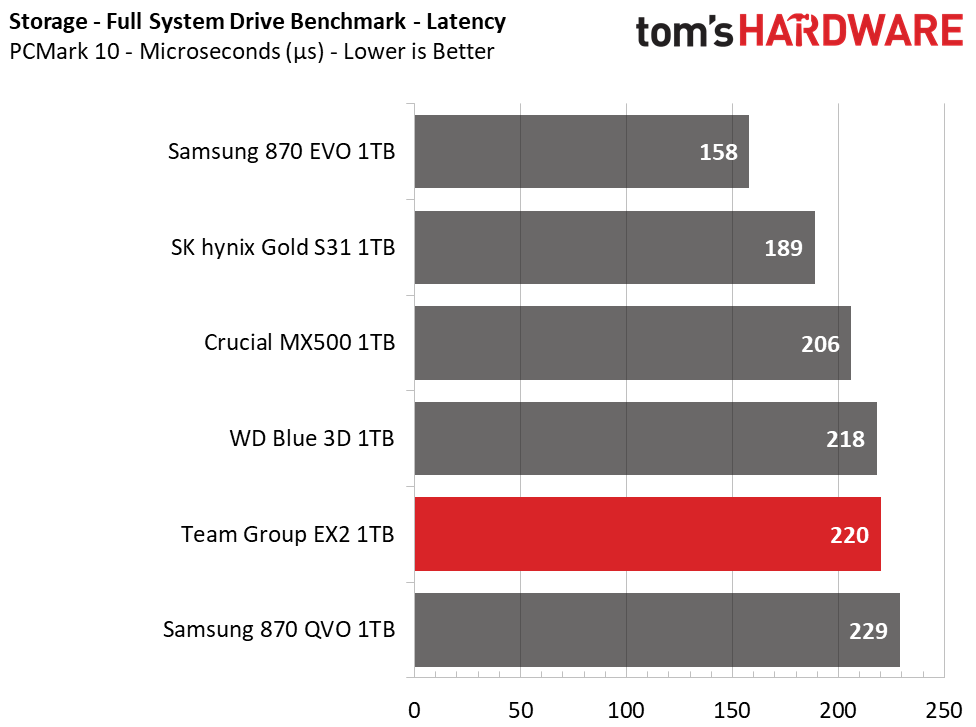
Team Group’s EX2 wasn’t as snappy as some of the best SSDs in PCMark 10’s Quick System Drive benchmark due to its DRAMless architecture holding it back. It did better in the Full System Drive benchmark, however, scoring ahead of both the WD Blue 3D and Samsung 870 QVO thanks to its large SLC cache.
Get Tom's Hardware's best news and in-depth reviews, straight to your inbox.
Synthetic Testing - ATTO / iometer
iometer is an advanced and highly configurable storage benchmarking tool while ATTO is a simple and free application that SSD vendors commonly use to assign sequential performance specifications to their products. Both of these tools give us insight into how the device handles different file sizes.
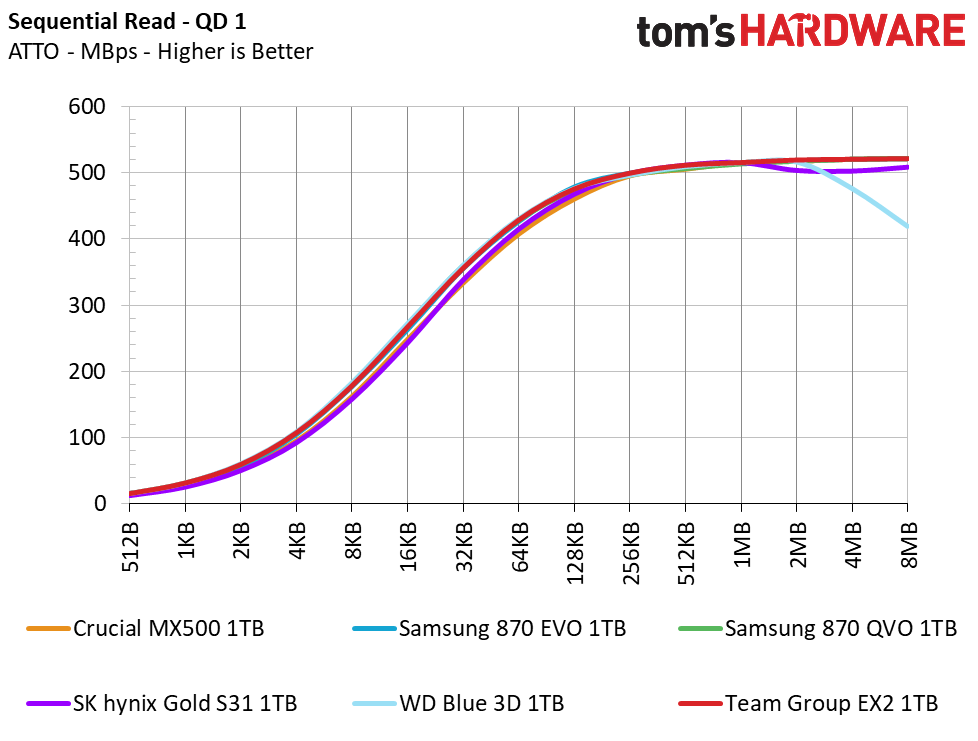
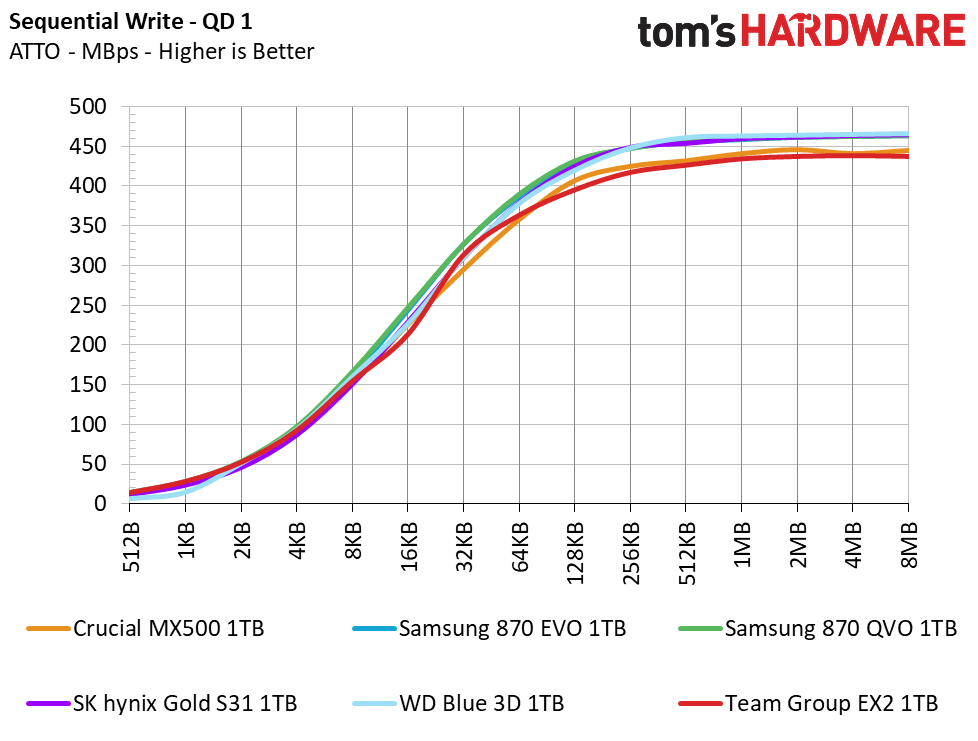
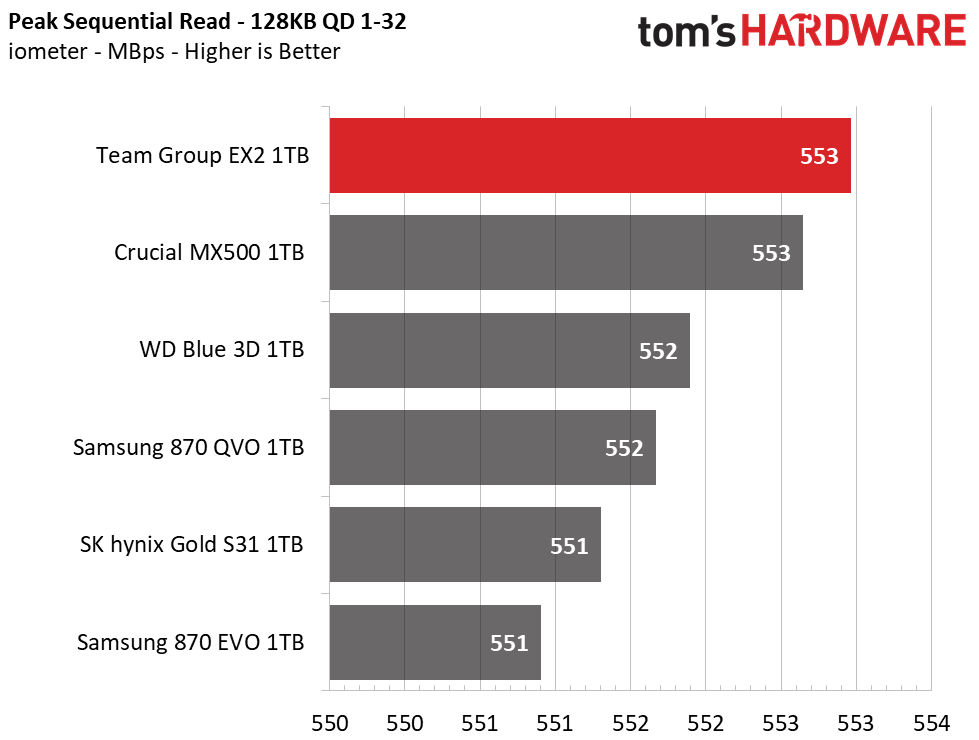
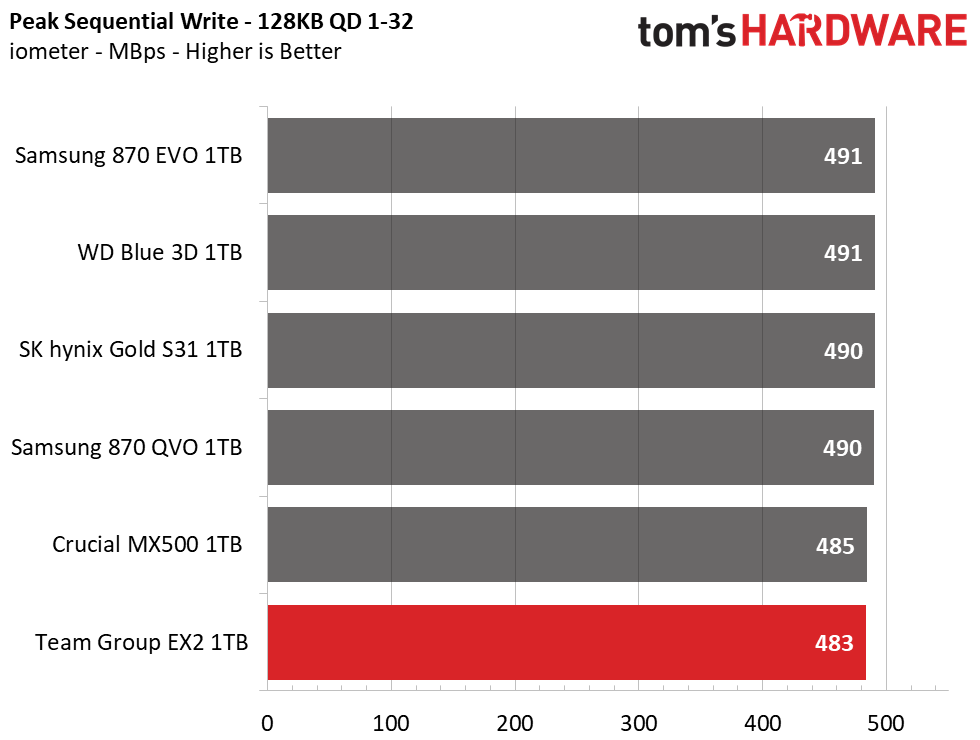
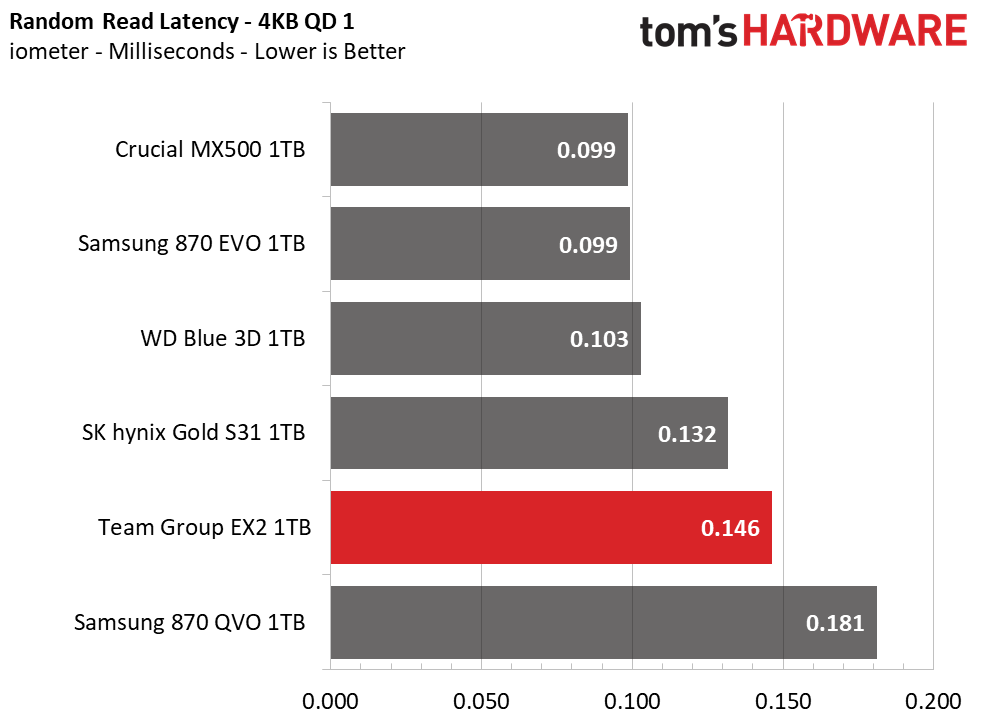
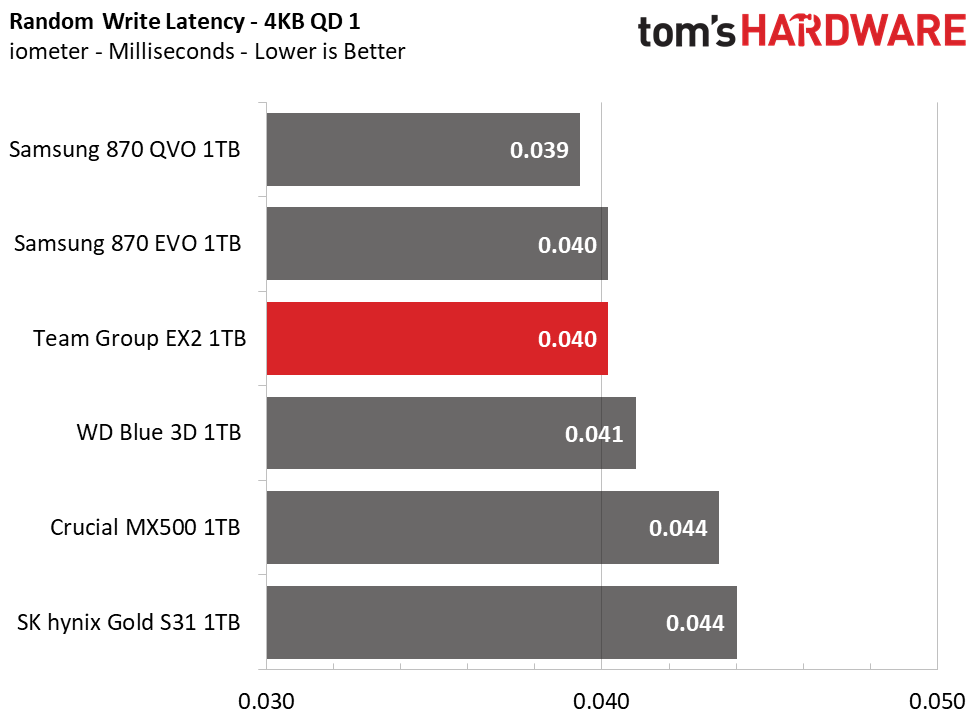
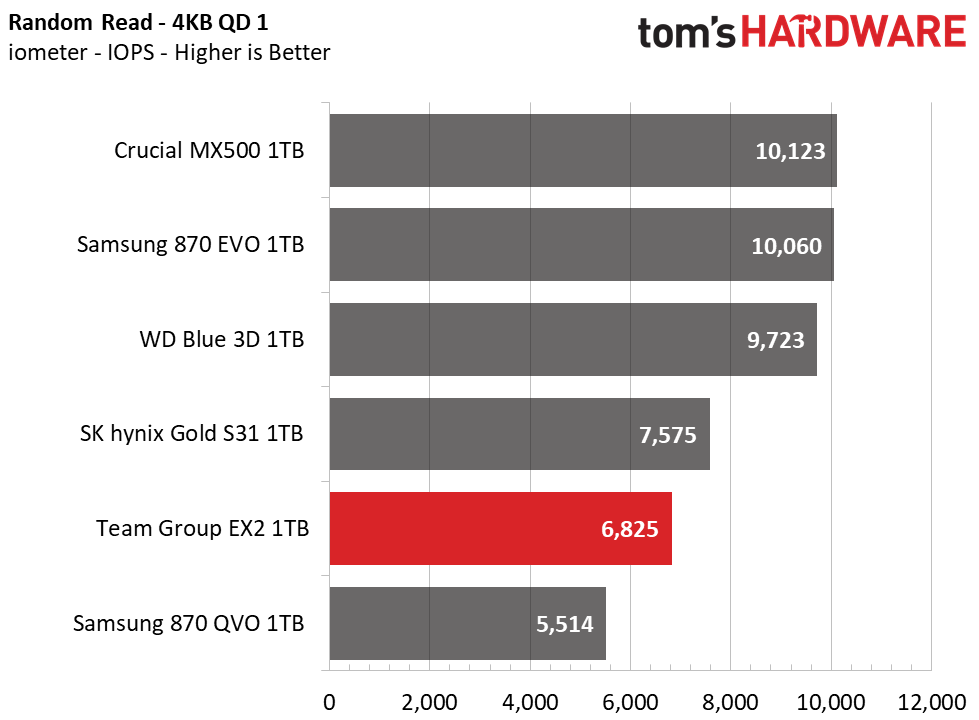
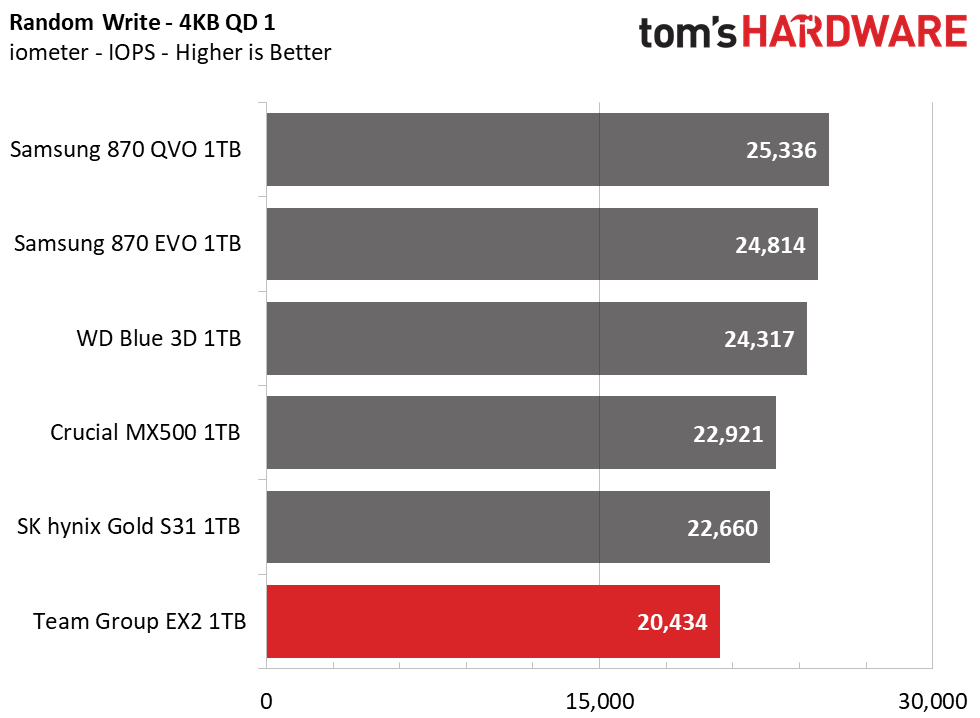
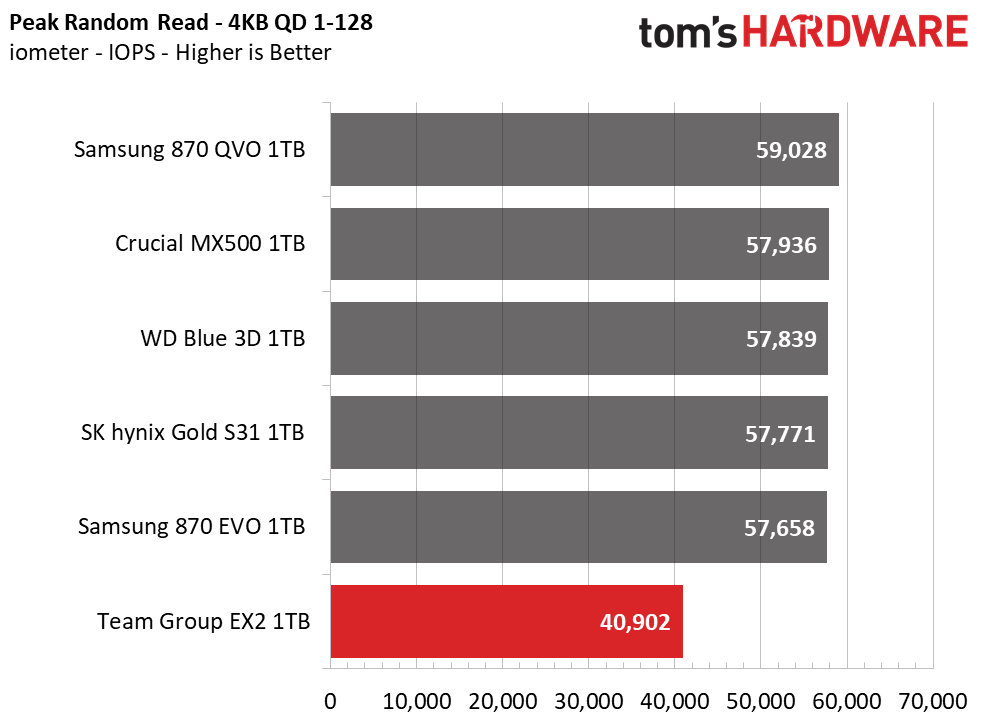
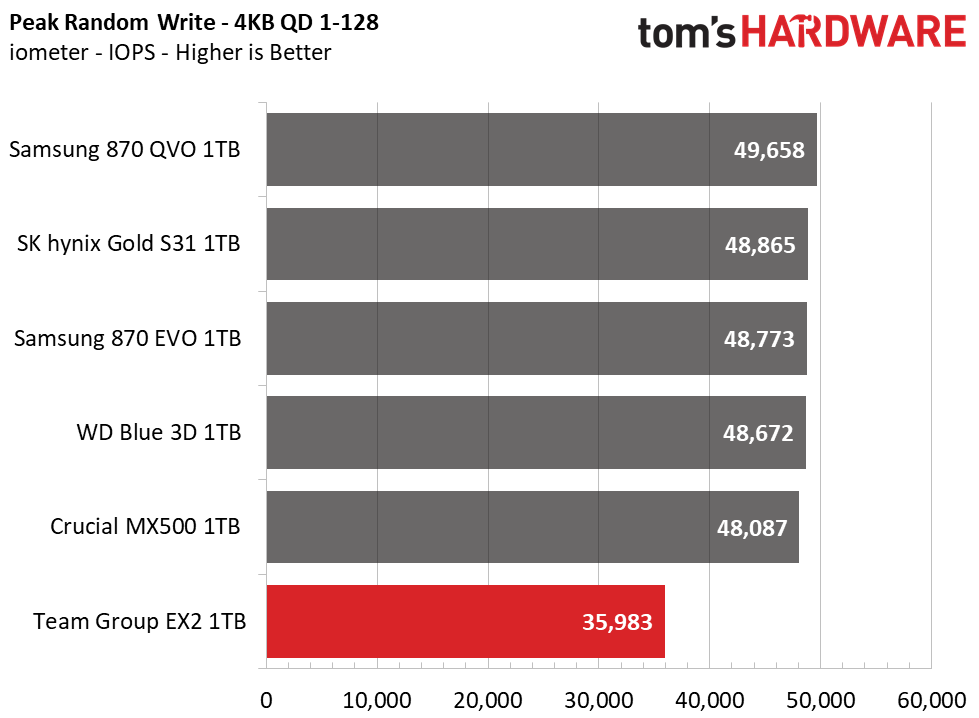
In terms of sequential performance, Team Group’s EX2 delivers similar results to the rest of the group, peaking at 553/483 MBps. Its random performance results, on the other hand, aren’t as strong due to its DRAMless architecture. At a queue depth (QD) of one, which represents most day-to-day operating system usage, the EX2’s 4K random read results trail most of the other drives, except for the Samsung 870 QVO. The EX2’s peak random performance doesn’t scale nearly as high, either.
Sustained Write Performance and Cache Recovery
Official write specifications are only part of the performance picture. Most SSDs implement a write cache, which is a fast area of (usually) pseudo-SLC programmed flash that absorbs incoming data. Sustained write speeds can suffer tremendously once the workload spills outside of the cache and into the "native" TLC or QLC flash. We use iometer to hammer the SSD with sequential writes for 15 minutes to measure both the size of the write cache and performance after the cache is saturated. We also monitor cache recovery via multiple idle rounds.
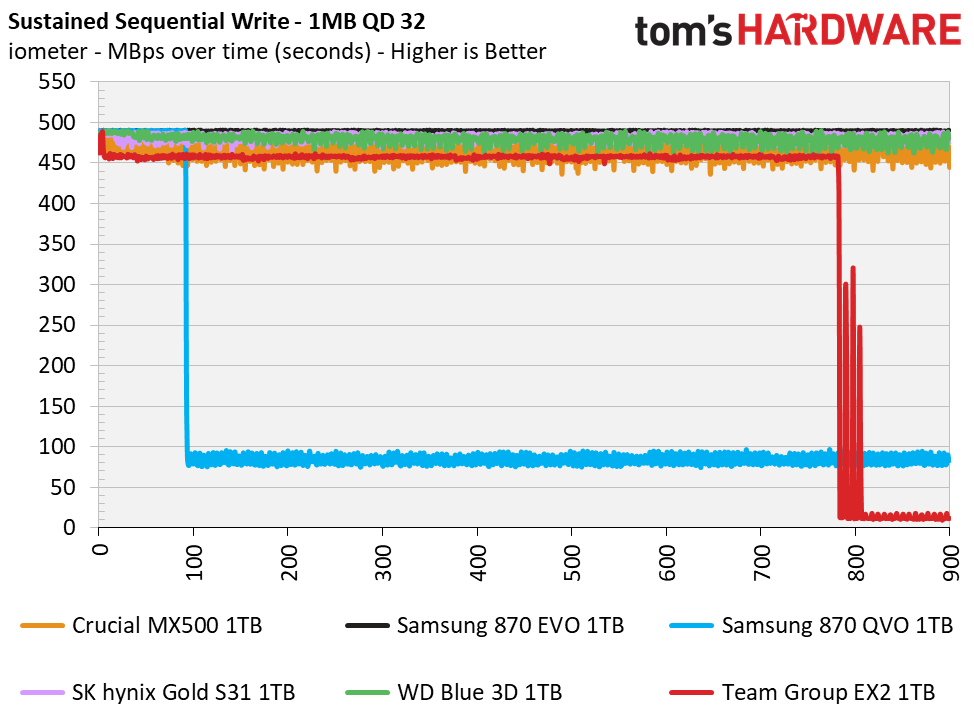
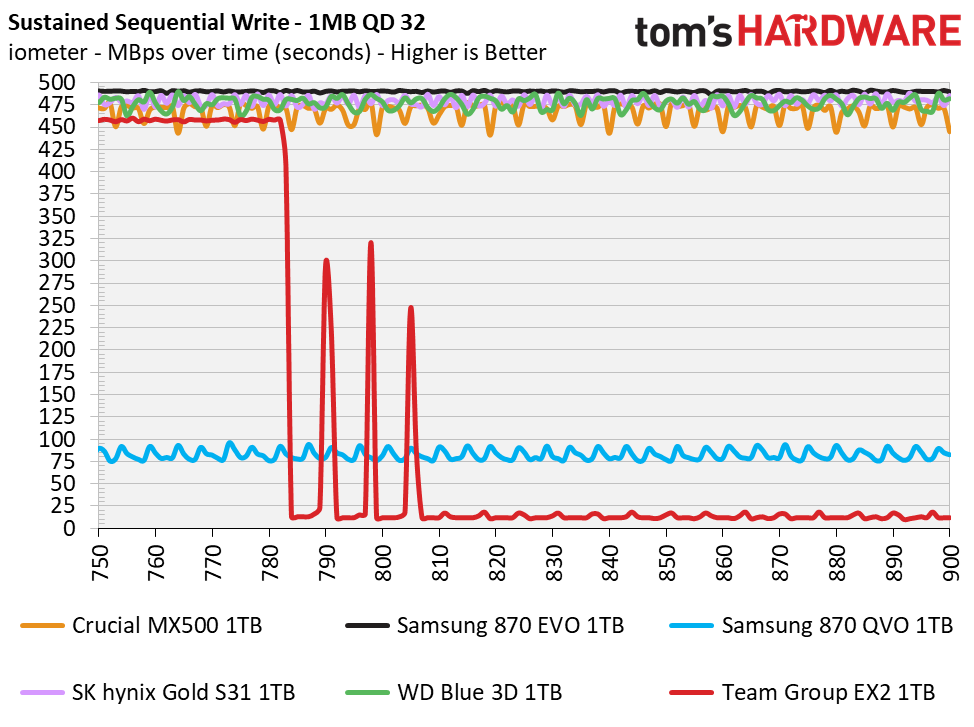
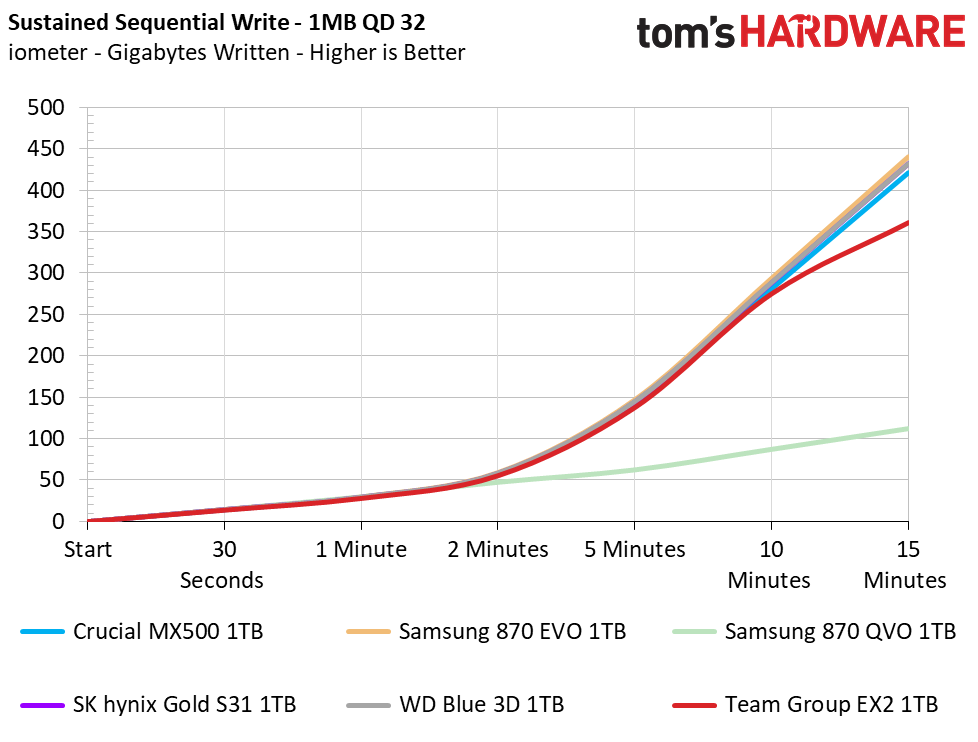
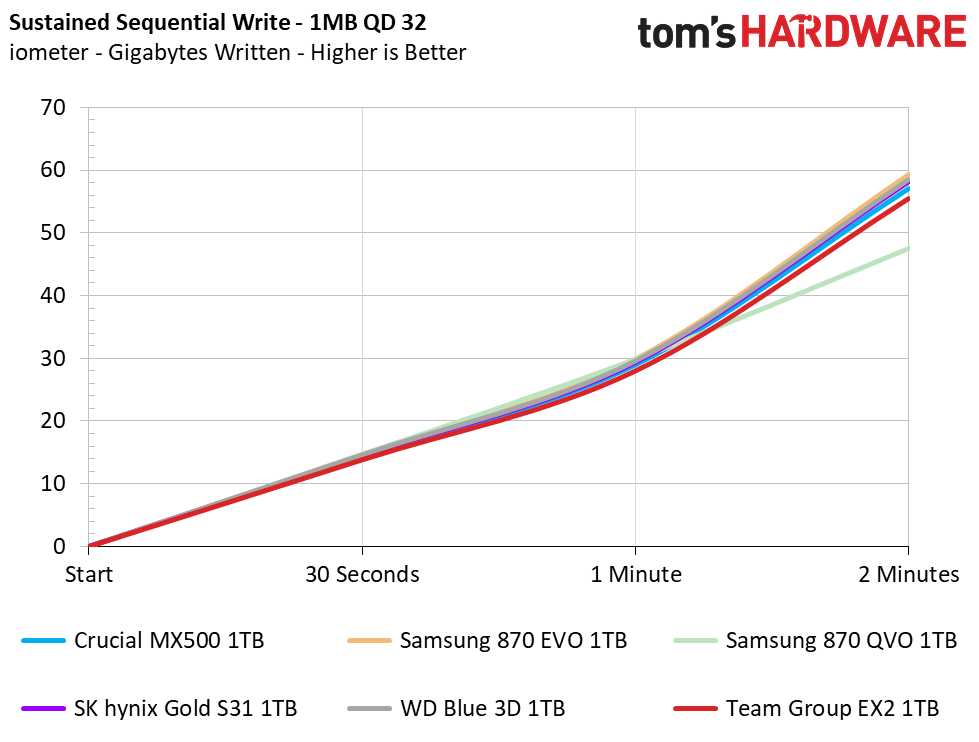
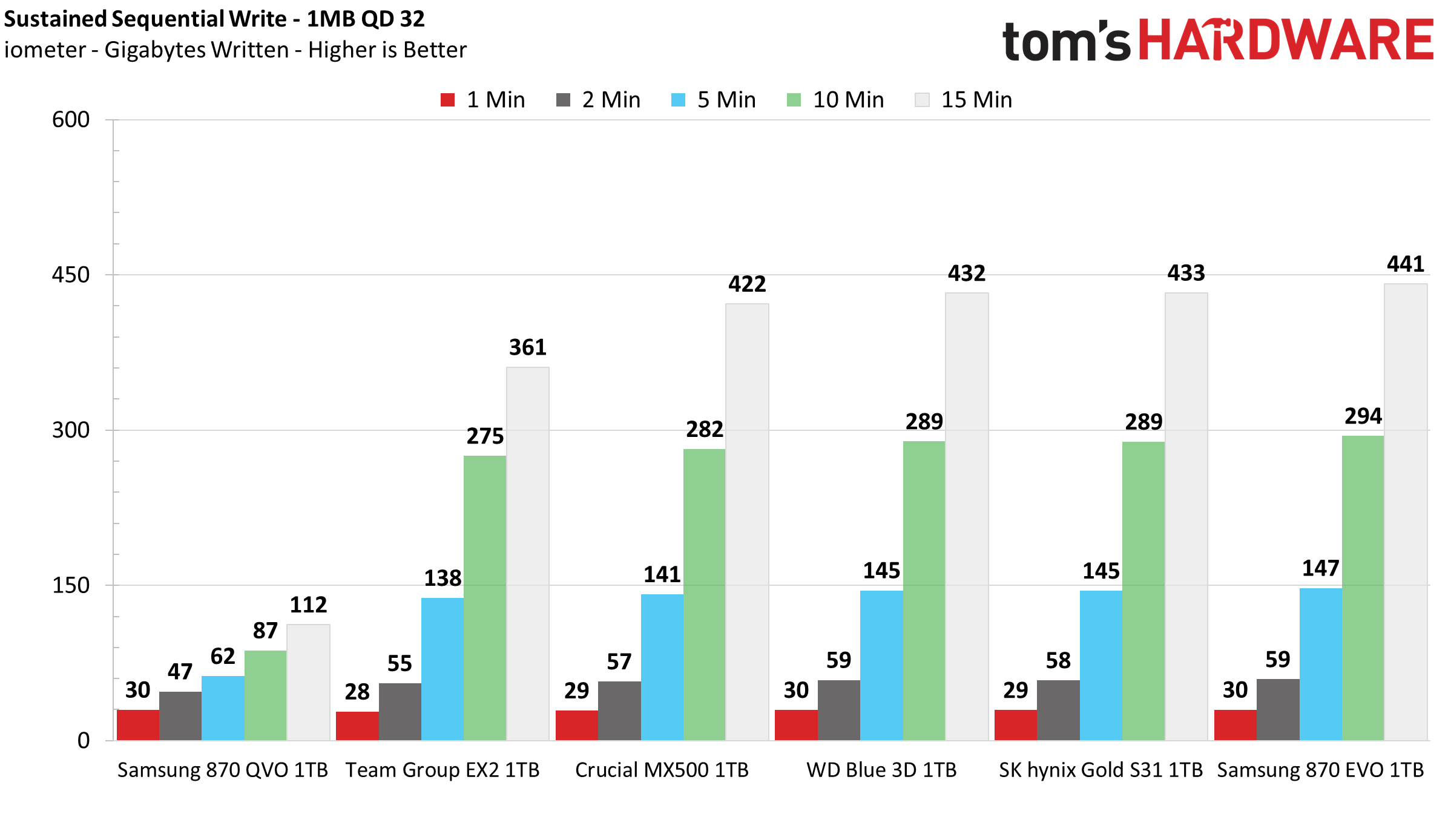
The Team Group EX2 delivers fairly solid write speeds within its SLC cache. However, sustained write speeds tank drastically after the cache is full. The EX2 wrote 358GB worth of data at a rate of 460 MBps before degrading to snail-like speeds of just 15 MBps. Fortunately, the SSD implements fast cache recovery to regain some of that space if needed. After given just 30 seconds of idle time, the EX2 recovered roughly 100GB of its SLC cache.
Conclusion
SATA SSDs are a dying breed as NVMe continues to rise. While SATA SSDs continue to be produced, their market share continues to fall and the drive for cost-effectiveness has never been in higher demand, which typically results in SSDs with slower DRAMless controllers and/or QLC flash. While this drive brings a lower price tag, it also means less for the consumer in terms of performance.
Team Group’s EX2 is one of the company’s most inexpensive SATA 6 Gbps SSDs, and it incorporates a DRAMless architecture to save on DRAM cost. However, it still uses TLC flash, which has more endurance than QLC drives. For a budget-oriented SSD, the EX2 delivered reasonably good results in most of our testing, but only when it operates within its dynamic SLC cache.
Once its dynamic SLC cache fills, however, the SSD offers terrible performance for a modern SSD. The EX2’s write speeds tanked hard during sustained write workloads, to say the least, as it bottomed out at a mere 15 MBps. In fact, that's the slowest performance we've seen from any modern SSD or HDD. Fortunately, this shouldn't be an issue for most of the bursty-type workloads we see in common desktop PC usage, or for long-term storage of your data files or games library.
The Team Group EX2’s SLC cache is fairly quick to recover, so the SSD can hide its lackluster sustained performance if you aren’t frequently copying large files. But still, it is something to be aware of, especially as you fill the drive with data. That's because the cache will shrink significantly as the drive is filled, and your experience may dip into very rocky territory.
For those looking for more consistent performance and higher reliability, DRAM-based SSDs are the way to go. The competition offers much better performance and doesn’t degrade to USB-like speeds like the Team Group EX2. Plus, they cost only a few dollars more in most circumstances — SK hynix’s Gold S31, Crucial’s MX500, and the WD Blue 3D are roughly $15 more at 1TB. For that kind of price, it’s very hard to recommend the Team Group EX2 over much better designed and higher-performing products with longer warranties.
MORE: Best SSDs
MORE: How We Test HDDs And SSDs
MORE: All SSD Content
- 1
- 2
Current page: 1TB Team Group EX2 Performance Results and Conclusion
Prev Page Team Group EX2 Features and Specifications
Sean is a Contributing Editor at Tom’s Hardware US, covering storage hardware.
